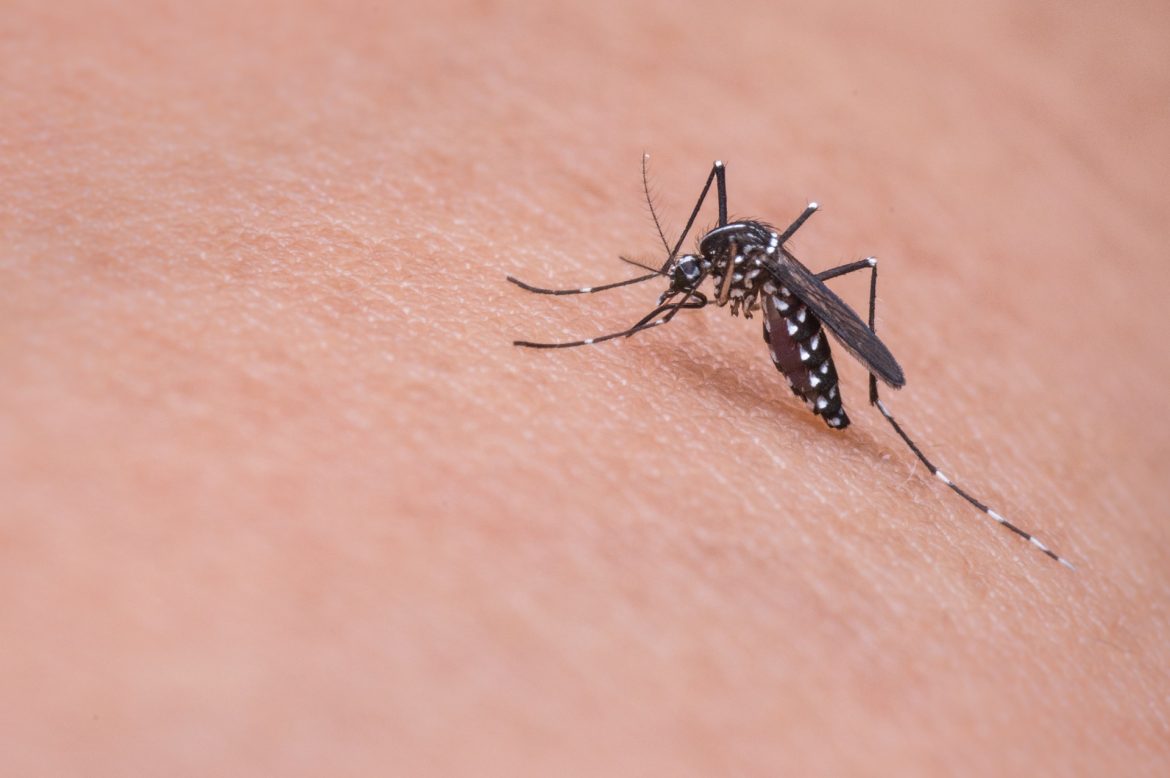Summer signals an increase in mosquito populations, and with more mosquitoes buzzing around, that means more people are dealing with mosquito bites and their consequences, from an itchy inconvenience to serious diseases, such as West Nile Virus.
If you think that mosquitoes tend to make a meal out of you more often than not, you might be right. Some people are more attractive to mosquitoes than others, says a Baylor mosquito expert.
Jason Pitts, Ph.D., assistant professor of biology in Baylor University’s College of Arts and Sciences, studies “host seeking”—how mosquitoes find their next blood meal. He said odor is a major factor why mosquitoes bite some people more often.

“Many insects find their way around the world through their sense of smell, even more than vision,” Pitts said. “Mosquitoes and other insects really are adept at finding places to lay their eggs or finding flowers on which to feed or finding people on which to blood feed just by the sense of smell.”
Female mosquitoes, which bite because they need blood for reproduction, have the ability to smell odor over long distances.
“Females are able to track upwind. They literally track,” Pitts said. “Once they get that stream of odor, they fly in and out of the stream of odor to orient themselves to try get to the host.”
As people gather this summer for family reunions, picnics or pool parties, using outdoor fans to keep cool—or blow away mosquitoes—actually may be signaling the pesky insects to join the festivities.
Fans are a double-edged sword. One thing, mosquitoes are not particularly strong flyers so that is why a fan might work to blow them away from you, but the drawback is that you are blowing your odor downwind. That is attractive to mosquitoes. At the same time you might be blowing mosquitoes away from you, you may actually be calling to mosquitoes from far away.
It is not just odor. Heat—at very close range—also is very attractive for female mosquitoes.
“Mosquitoes are exquisitely sensitive to differences in temperature on surfaces. When it comes to heat or carbon dioxide, both can be beacons for mosquitoes as well,” Pitts said.
Lastly, researchers have found that in addition to odor and heat, mosquitoes can use the sense of taste to decide whether to feed.
Once a mosquito lands on the skin, they taste the skin to decide whether this is a good host or not,
Pitts said. “They can actually taste DEET, which is long-range repellant. They can smell it and avoid it. When they taste it, they will also fly away. Therefore, we know that taste is also important in some ways. Taste is the final choice before blood feeding.”
Whether you are a favorite among mosquitoes or not, Pitts recommends these three tips for minimizing your chances of being bitten.
Reduce mosquitoes’ breeding grounds.
The most important thing that anyone can do is to reduce breeding sources for mosquitoes by eliminating stagnant water. If you have standing water in any kind of container in your yard, get in the habit of emptying those containers, including children’s swimming pools, which should be emptied at least once a week. Why? Once a mosquito hatches, it takes a mosquito larva about a week to completely mature and become an adult. Emptying stagnant water can have a huge impact on lowering mosquito populations, especially in urban areas, even a city the size of Waco.
Stick with DEET topical repellants.
Bracelets, bands and other wearable devices that emit repellant compounds, such as citronella, lemongrass oil or eucalyptus, probably do reduce some mosquito bites. However, Pitts said these devices don’t provide absolute protection against bites. Topical repellants, he said, are still the best. They cover your skin and will not only have a volatile repellant effect, but if a mosquito lands on a person’s skin, it will not bite.
Have concerns about using DEET? Consumer Reports offers advice on the use of DEET.
Avoid peak biting times.
Typically, mosquitoes bite at dusk and at dawn. Mosquitoes are most active when the sun is rising or setting. If you like to take a morning run or walk at dusk, you should apply DEET repellant to avoid being bitten.
(Find this story at baylor.edu/news.)

